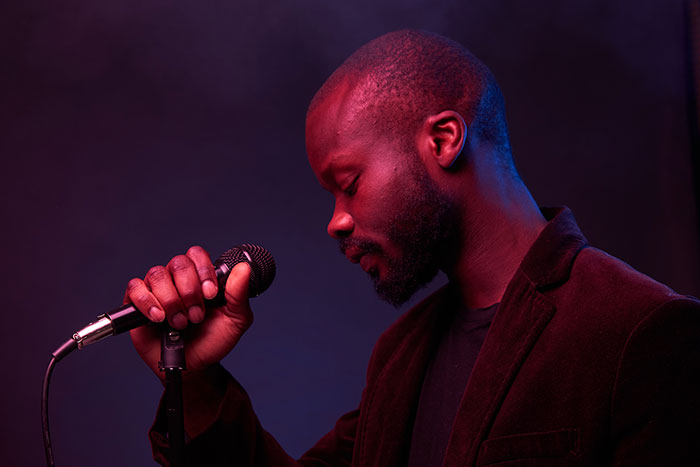Music is one of the most amazing forms of self-expression and communication available to us. Being able to sing gives you the opportunity to make music using your own unique instrument – your singing voice. Unbeknownst to you, there are a lot of complex mechanisms happening in your brain and body to support your singing abilities. Scientists have also identified a range of benefits singing has on your mental and physical health. Understanding how we create sound and the profound effects it has on us can be crucial in developing your own vocal and using singing to your advantage to improve overall wellbeing. In this article, find out what happens when we sing!
How do you sing? The physiology behind our vocals
A range of muscles and organs are involved to help you project a stunning vocal! While it may seem simple, a few complex processes are involved in your body, so we will explore them further in this section.
The breath
You may be thinking that producing vocals starts from vocal cords, but that’s not necessarily the case. It starts from the simple yet vital process you perform every moment of your life – breathing. As you inhale, your diaphragm contracts downward, making room for the lungs to expand. With each exhale, the diaphragm relaxes back into its original position as your lungs release air. Your breath, along with abdominal muscles, diaphragm, back muscles and the muscles between your ribs give the sound its power. They are key to supporting the airflow which is then turned into your vocal.
Vocal chords and larynx
The airflow created by your breath activates the vocal cords. Vocal cords consist of tiny muscle fibres, which are located in your larynx, also known as the voice box. They are suspended in your throat by supporting muscles and are key to creating a sound. To do this, they utilise the air flowing upwards from your diaphragm towards the throat. It’s important that you maintain a great posture whilst singing, as this will prevent your vocal cords or the airflow from obstructions and help your voice sound its best and most powerful. Remember this next time you are practising, recording or performing!
Controlling and shaping our unique sound
You might be thinking that vocal cords are key contributors to a vocalist’s unique singing voice. That is not strictly the case – vocal tract, or simply, your throat and mouth are tools for you to shape your sound. Here is where your vocal resonates and, by manipulating this space, you are able to alter your voice. Furthermore, shaping your lips and moving your tongue and teeth can help you modulate the sound even more. You may have heard the story of Freddie Mercury refusing to fix his overbite, which he was very self-conscious of, due to concerns that this will alter his unique sound. While experts have said teeth contribute the least to the sound of our vocals, it further emphasises the role of our articulators and vocal tract in distinguishing and shaping our voice.
Singing as a workout?
With so many muscles and parts of our body involved, it is no wonder that singing burns calories! For a 150 pound person, 1 hour of singing whilst standing up burns around 140 calories and, for those of us who weigh more, the number of calories burned increases. On the flip side, it has been suggested that aerobic exercise will improve your breath stamina and maintaining a healthy muscle tone will help you sing better, so singing and a healthy lifestyle appear to go hand in hand.
What happens to your brain when you sing?
When discussing the science of singing voice, it’s difficult to overlook the exciting processes that occur in our brain when we sing. Our speech utilises the left side of the brain, responsible for structuring sentences, while singing uses the right hemisphere, responsible for rhythm and melody. This unique phenomenon explains why someone with a speech impediment might be able to sing without it and why so many people lose their regional accents while singing. It’s simply because they’re using a different part of the brain. Music, in particular, is hard-wired into our brain and has benefits of improved cognition, particularly, during later stages of life. Learning to sing at any stage in life, but particularly late into adulthood can even help you retain speech and communication skills. Singing has been found to improve concentration and memory retention, particularly in people suffering from cognitive impairment and dementia.
Singing and mental wellbeing: what’s the connection?
You may have heard that singing helps to reduce stress levels, alleviate anxiety and promote optimal mental health. The singing mental health link isn’t just a placebo effect. There is a growing body of evidence drawing an undeniable link between singing and improved wellbeing. Singing is proven to release endorphins and oxytocin, which is known to stimulate feelings of trust and bonding while eliminating anxiety and depression. Singers have been observed to have lower levels of cortisol, indicating reduced stress levels. This was true even for vocalists who may be facing more difficulties and are undergoing stressful situations, compared to those who don’t sing. Remember when we mentioned the importance of breath? Well, singing helps to deliver more blood oxygen to your brain, improving mental clarity, concentration and alertness.
Why is group singing so popular?
Choirs and singing ensembles are becoming increasingly popular in music therapy and mental health treatments. Our vocal is extremely personal to us, and while many people shy away from expressing themselves through singing, it can actually give us a thrilling sensation of letting go and allowing our authentic vocal to shine through. What happens when we sing together? Group singing can build a sense of community and it has even been proven to synchronise heartbeats, making it comparable to a guided meditation. Getting out there, meeting like-minded people and immersing yourself into the joy of singing alleviates feelings of loneliness and depression. Working together to create a beautiful harmony will build trust among you and your peers while increasing your confidence too.
What is truly fantastic about the research is that you don’t have to be a professional singer or strive to achieve perfection to reap the benefits singing can provide for you. There is no need to become the next Beyonce. Singing is unique because you don’t need to buy any expensive instruments to create sounds and actively participate in the creation of music. If you haven’t already, we highly recommend you try singing as a hobby or join a local choir and see what benefits you can achieve by just using your vocal and having fun with your favourite songs.
Want to learn how to sing?
London Singing Institute provides singing lessons in London for beginners and experienced vocalists.
If you’re looking to tap into your singing potential, learn new techniques, discover your unique vocal or simply need a confidence boost to embark on your journey to sing, our singing teachers in London will help you achieve that and so much more.
Our fantastic team of experts understand the science of singing voice and will give you that extra motivation and tools to enjoy your own gift of singing and use your vocal to the best of its ability.
Visit our singing courses page for more information on our adult singing lessons.
Tags: The art of singing, Vocal science, What happens when we sing







